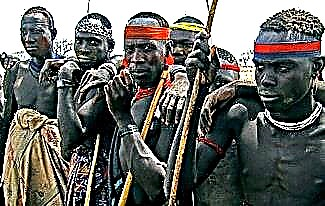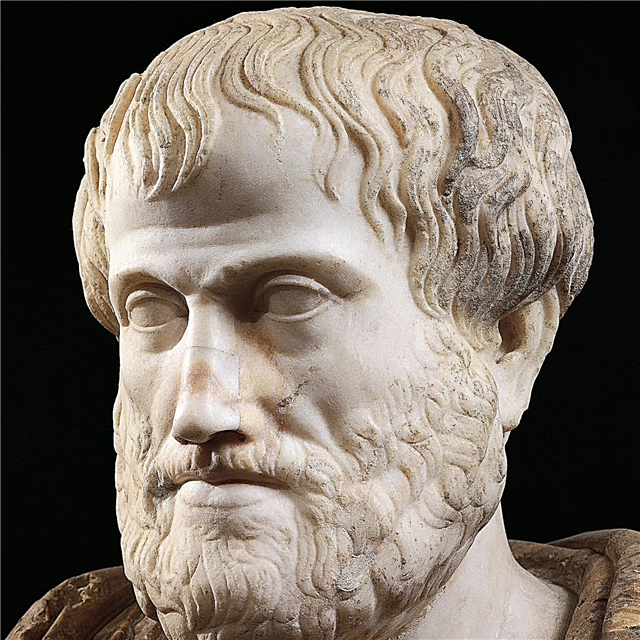The name of Alexander the Great has long become a household name in the context of conversations about the art of war. The Macedonian ruler, who in a matter of years managed to conquer almost half of the then known world, is rightly recognized as the greatest military leader in the history of mankind. In hostilities, Alexander brilliantly used the strengths of his army, primarily the infantry, and tried not to allow enemy troops to use their advantages. In particular, in India, the Macedonians successfully fought with elephants previously unseen on the battlefield. Having a rather weak fleet, he defeated the sea powers, depriving them of their basing ports.

Alexander's success in state building, on the other hand, is highly questionable. He conquered countries, founded cities and sought to arrange the whole world according to Hellenic patterns, but the gigantic state he founded turned out to be unstable and collapsed almost immediately after the death of the king. Nevertheless, historians consider Alexander's contribution to the spread of Hellenic culture to be very significant.
1. The future conqueror of the world was born on that day 356 BC. BC, when Herostratus set fire to the temple of Artemis. The ancient PR masters interpreted the coincidence correctly: the goddess, for the sake of obstetrics, could not save the temple built in her honor.
2. According to legends and compiled by the court genealogies, Alexander was considered almost a direct stream of the Greek gods. He was constantly informed about this from early childhood. The fact that the Greeks themselves considered Macedonia a country of barbarians, of course, did not speak to the future king.
3. Young Alexander was desperately jealous of his father's military successes. He was afraid that Philip II would conquer the whole world without leaving anything to the heir.
4. Already at a young age, Alexander successfully commanded troops, suppressing the uprisings of the conquered tribes. Father, going to the next war, with a light heart left him as regent.
5. Philip IV died exceptionally well during a period of some cooling to his son. Father Alexander was stabbed to death by his own bodyguard at a time when Philip's relationship with his son was very bad, and the king was even thinking about another heir.
6. Tsar Alexander was proclaimed by the army, since the then dynastic rules could be interpreted quite freely. The new tsar quickly eliminated all possible oppositionists by crucifixion, dagger strikes and, as historians delicately write, "forcing suicide." In these concerns, Alexander's mother, Olympias, was Alexander's faithful assistant.
7. Having come to power, Alexander abolished all taxes. The budgetary debt at that time was about 500 talents (approximately 13 tons of silver).
8. In addition to the need to win booty by wars, Alexander was driven by the desire to establish new colonies, which were to be mastered by all sorts of dissidents and those who disagreed with his policy.
9. Alexander's army conquered vast territories from Egypt to India and Central Asia in virtually 10 years.
10. The size of the enemy power paradoxically helped Alexander the Great to defeat the mighty Persian Empire: after the first victories of the Macedonians, the satraps - the rulers of certain parts of Persia - preferred to surrender to Alexander without a fight.

11. Diplomacy also contributed to Alexander's military successes. He often left recent enemies as rulers, leaving them property. It also did not contribute to the fighting efficiency of the opposing armies.
12. At the same time, the Macedonian king was extremely merciless to his fellow tribesmen, suspected of conspiracies or treason. He ruthlessly executed even close people.
13. Contrary to all the canons of military leadership, Alexander constantly personally rushed into battle. This endeavor cost him many wounds. So, in 325 in India, he was seriously wounded with an arrow in the chest.
14. The ultimate goal of Alexander's conquests was the Ganges - according to the ideas of the ancient Greeks, the inhabited world ended there. The commander failed to reach him because of the exhaustion of his army and the murmur that began in it.
15. In 324, a grand wedding was arranged, designed to strengthen the state of Alexander through the marriages of his subjects with Persians. Alexander married two representatives of the nobility himself and married another 10,000 couples.
16. In the end, Alexander stepped on the rake of the Persian king Darius. The state he assembled was too large. After the death of the ruler, it fell apart almost at lightning speed.
17. The exact cause of Alexander's death has not been established. According to various descriptions, he could die from poisoning, malaria, or another infectious disease. The greatest military leader of antiquity was burned to death from illness in 10 days in June 323 BC. e. He was only 32 years old.
18. In addition to the well-known Egyptian Alexandria, Alexander founded many more cities with the same name. Some ancient historians counted more than three dozen Alexandria.
19. There is conflicting information about Alexander's homosexuality. According to one of them, a great general would not be at all alien to this Hellenic tradition. Other sources report that he resented when he was offered to give boys for bed pleasures.
20. Alexander was extremely pragmatic in his religious views. Respecting the beliefs of the conquered peoples, he thereby contributed to military success. Only at the end of his life he began to deify himself, which did not please his soldiers and those close to him.









